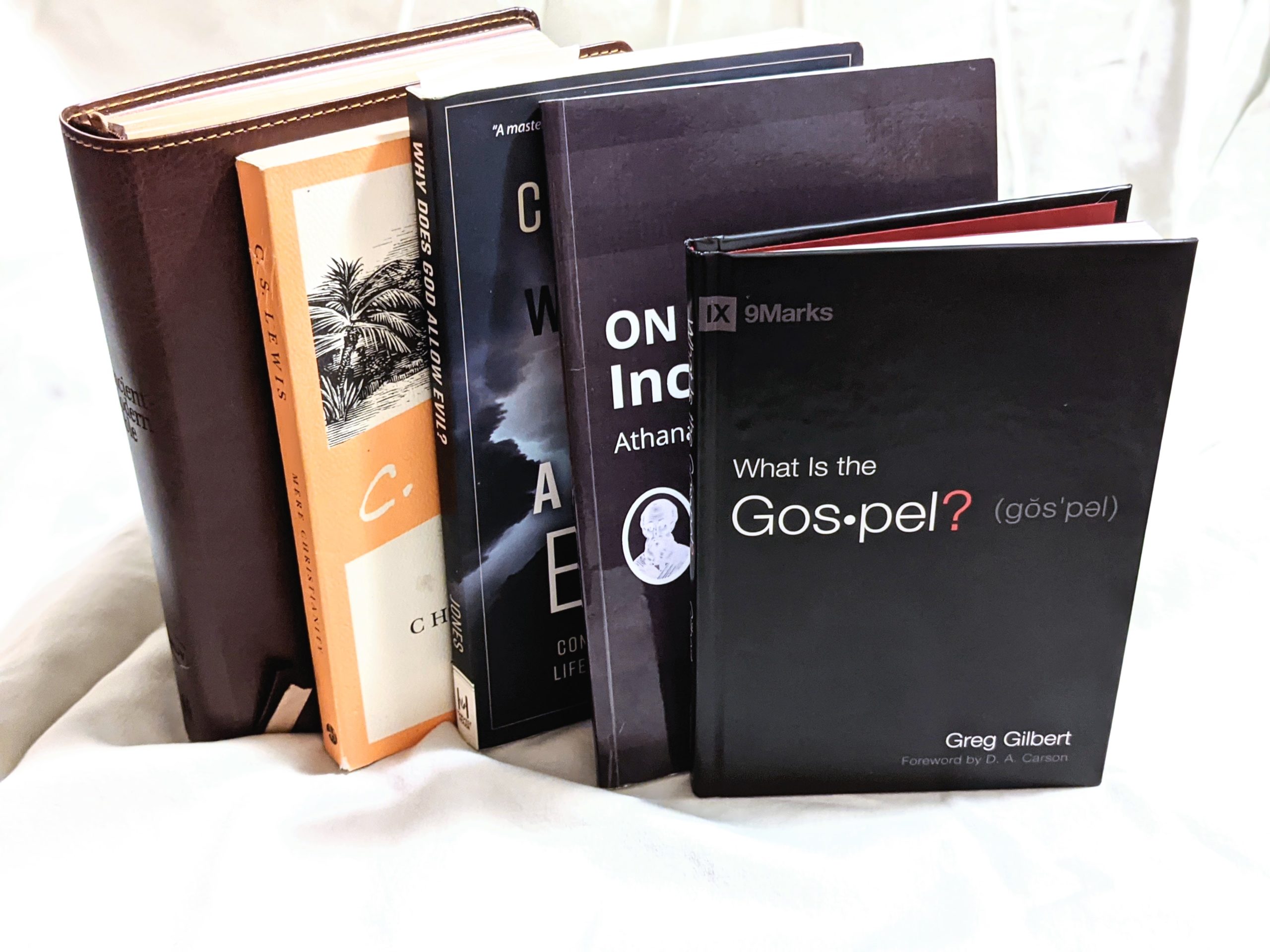
Understanding the Wrath and Love of God
God in the Old and New Testaments
Have you ever thought that God seems loving and merciful in the New Testament, but angry and wrathful in the Old? How do we understand God’s wrath and love? How do we reconcile the God of the Old and New Testaments? God’s wrath and love.
God’s Wrath and Love
The Bible teaches that God doesn’t change (Malachi 3:6) and that with Him there is no variation of shadow due to change (James 1:17). Because of this, we know that God isn’t actually different in the Old and New Testaments—the difference is in our perspective.
The reason God seems more wrathful in the Old Testament is because we’re focusing on the passages that highlight that. Furthermore, God seems more loving in the New Testament because, again, those are the passages we’re focusing on. The entire Bible is God’s revelation of Himself to us. Therefore, to get a deeper, more balanced understanding of God we need more than a few passages; we need to consider the whole weight of Scripture.
God of the Old Testament
It is true there are many passages in the Old Testament depicting the wrath of God, but if we read further we will see that there are also numerous verses describing His love.
For example, one description of God comes from the book of Exodus, but these same words are echoed throughout the Old Testament.
The LORD passed before him and proclaimed, “The LORD, the LORD, a God merciful and gracious, slow to anger, and abounding in steadfast love and faithfulness, keeping steadfast love for thousands, forgiving iniquity and transgression and sin.”
Exodus 35:6-7a
These two verses are referenced repeatedly in the Old Testament (e.g., Numbers 14:18; Nehemiah 9:17; Psalm 86:15; Psalm 145:8; Joel 2:13). They describe God as not only loving, but abounding in steadfast love; moreover He is also described as merciful, gracious, slow to anger, and forgiving.
Next, Isaiah 54:10 tells of God’s promise to His people that His love for them is eternal, His covenant of peace is secure, and He has compassion on them.
For the mountains may depart
and the hills be removed,
but my steadfast love shall not depart from you,
and my covenant of peace shall not be removed,”
says the LORD, who has compassion on you.Isaiah 54:10
The love of God is described in Psalm 136 as steadfast and enduring forever. This is a psalm of thanksgiving to God for who He is and what He has done. In particular, it speaks of God as our Creator, who led Israel out of bondage and into the promised land, who remembers, rescues, and provides for His children. In short, Psalm 136 describes the Old Testament history of a loving God who acts for His people.
Give thanks to the God of heaven,
for his steadfast love endures forever.Psalm 136:26
The next verse comes from Zephaniah, a prophetic book that promised judgment to Judah for its idolatrous syncretism. However, the books ends with the hope of future restoration, looking forward to a time when God would be in their midst. The presence of God promised here is clearly desirable, as He is described as mighty, rejoicing, quieting, and exulting.
The LORD your God is in your midst,
a mighty one who will save;
he will rejoice over you with gladness;
he will quiet you by his love;
he will exult over you with loud singing.Zephaniah 3:17
This next passage is one you may be familiar with. In it, God is encouraging Israel. Specifically, God reminds them that He chose their father Abraham, that He called them, and that He is with them.
Fear not, for I am with you;
be not dismayed, for I am your God;
I will strengthen you, I will help you,
I will uphold you with my righteous right hand.
Isaiah 41:10
Next is another familiar passage, this one from the book of Lamentations. In this book the prophet Jeremiah mourns the great city of Jerusalem as it had been before God’s judgment led to her desolation. Yet, even in this dire state of affairs though, Jeremiah declares he still has hope in God.
The steadfast love of the Lord never ceases;
his mercies never come to an end;
they are new every morning;
great is your faithfulness.Lamentations 3:22-23
God of the New Testament
Because we tend to highlight God as primarily loving in the New Testament, it may be helpful to look at some passages that can provide some balance. Just as there are numerous verses in the Old Testament describing a God of love, there are multiple examples in the Old Testament describing God as wrathful and judge.
In the gospel of Matthew we read about Jesus warning His disciples of persecution. With it He gives an encouragement, that they should not fear those who would kill them, for persecutors cannot kill souls. Instead, Jesus says they should fear God. This is an encouragement for Christians, but for unbelievers it is a warning.
And do not fear those who kill the body but cannot kill the soul. Rather fear him who can destroy both soul and body in hell.
Matthew 10:28
Most of us probably know John 3:16 describing God’s love, but it also comes with a warning of condemnation for those who do not believe (John 3:18). Finally, at the end of the chapter (verse 36) John repeats this warning, saying that the wrath of God is on him who does not obey Jesus.
Whoever believes in the Son has eternal life; whoever does not obey the Son shall not see life, but the wrath of God remains on him.
John 3:36
When it comes to God in the New Testament, we can especially tend to think of Jesus as a loving peacemaker. However, this view isn’t backed up by Scripture. In Matthew chapter 10, Jesus describes the purpose for His coming. It isn’t to bring peace, but a sword; not unity, but division.
“Do not think that I have come to bring peace to the earth. I have not come to bring peace, but a sword. For I have come to set a man against his father, and a daughter against her mother, and a daughter-in-law against her mother-in-law. And a person’s enemies will be those of his own household.
Matthew 10:34-36
Jesus divides because not everyone is aligned with Him. Those who are unrighteous shall experience the wrath of God.
For the wrath of God is revealed from heaven against all ungodliness and unrighteousness of men, who by their unrighteousness suppress the truth.
Romans 1:18
Even though it seems like the unrighteous are blessed, their punishment is sure—and so is the rescue of the godly.
then the Lord knows how to rescue the godly from trials, and to keep the unrighteous under punishment until the day of judgment.
2 Peter 2:9
The book of Hebrews warns us not to take our salvation lightly—if we reject it we can expect judgment and fury. This abandonment of faith is described in Hebrews as trampling the Son of God, profaning the blood of the covenant, and outraging the Spirit of grace. As the author concludes, the judgment that would follow would fearful.
For we know him who said, “Vengeance is mine; I will repay.” And again, “The Lord will judge his people.” It is a fearful thing to fall into the hands of the living God.
Hebrews 10:30-31
Finally, in the book of Revelation, we see the wrath of God being poured out onto the earth.
Then I heard a loud voice from the temple telling the seven angels, “Go and pour out on the earth the seven bowls of the wrath of God.”
Revelation 16:1
Understanding God’s Wrath and Love
The above verses demonstrate that the Old Testament does not merely describe a God of wrath and the New Testament does not describe a God who is only loving. Both describe God as He has chosen to reveal Himself to us: not just a God of wrath, not just a God of love, but a God who is righteous judge and compassionate savior. We cannot divide either characteristic from the other, they are both part of God’s character and they are both revealed to us in the Bible—the Old and the New Testament.
Thinking about God’s wrath can be uncomfortable, but it’s actually a good thing. God is holy and righteous and He judges wickedness. He is wrathful against evil. A god who loves and accepts everyone regardless of their deeds isn’t a good god. On the contrary, a good God upholds justice and requires righteousness.
Because of the righteous requirement of God, we deserve the wrath of God. Nevertheless, we can find peace with God by the salvation He offers us in Jesus Christ. My own sin deserves the wrath of God, but I have been justified by the blood of Christ and am therefore saved by Him from God’s wrath (Romans 5:9). Therefore, as Paul said, “More than that, we also rejoice in God through our Lord Jesus Christ, through whom we have now received reconciliation,” (Romans 5:11).
Have you ever wondered about the differences between God in the Old and New Testaments? What do you think now? Let me know in the comments!




